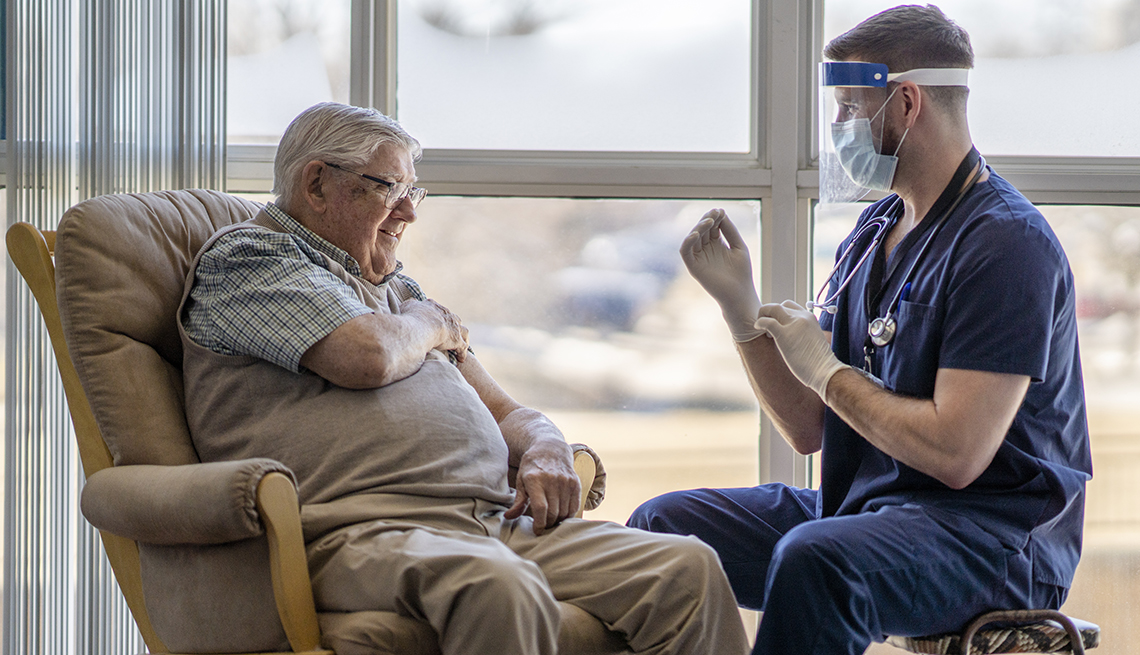AARP Hearing Center
An unvaccinated health care worker is believed to be at the epicenter of a March COVID-19 outbreak in a Kentucky nursing home where nearly 50 people were infected, including 18 fully vaccinated residents. Three residents — including two who were unvaccinated — died, according to a review of the incident published Wednesday by the U.S. Centers for Disease Control and Prevention (CDC).
The report illustrates the dangers posed by unvaccinated staff in nursing homes, experts say. Almost all U.S. facilities have completed vaccination clinics through a federal partnership with CVS and Walgreens. But participation among staff has been much lower than among residents. In the unnamed Kentucky facility, 75 of the 83 residents had received two doses of Pfizer's vaccine. Just 61 of the 116 staffers were similarly inoculated at the time.
"The higher the amount of unvaccinated staff, the greater likelihood there will continue to be outbreaks,” says Mike Wassterman, a geriatrician and past president of the California Association of Long Term Care Medicine.
Many nursing home employees work long hours for low pay, with little if any sick leave, contributing to vaccine hesitancy. Adelina Ramos, a certified nursing assistant at a Rhode Island nursing home who recently testified before the Senate Finance Committee, told AARP last month that many of her coworkers “didn't want to be the guinea pigs, so they were waiting to see who goes first and see how their reactions were."
But the CDC report's authors also suggest the outbreak is an example of vaccines doing what they're supposed to: limiting serious medical complications from COVID-19. They note that “vaccinated persons were significantly less likely to experience symptoms or require hospitalization” if infected. Eighteen of the unnamed facility's 75 fully vaccinated residents were infected during the outbreak, but only one was hospitalized and later died. Meanwhile, six of the facility's eight unvaccinated residents were infected. Four were hospitalized, and two died.
"There's a dramatic difference among vaccinated and unvaccinated residents, and that's not surprising,” Wasserman says of the report. “We know the vaccines work, and we know they make a huge difference."







































































